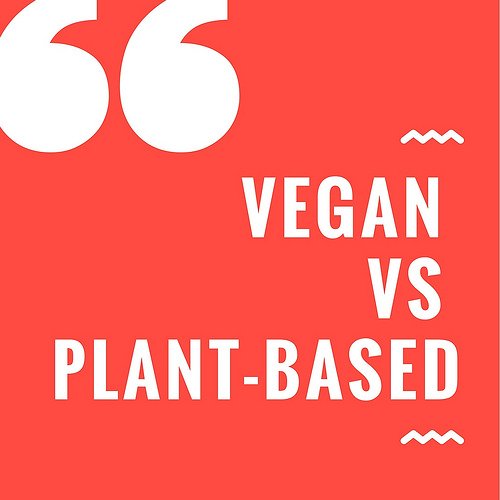
Vegan. Plant-based. What does it mean exactly?
Despite the fact that Vegan has become the new "trend", there are still many people out there that don't actually understand what it means. There are still people who can't quite comprehend when we say no animal products that we actually mean ABSOLUTELY none. No dairy, no egg, no fish sauce, no animal fat, no honey, nothing! Vegetarian and vegan are different things! To make matters slightly more confusing, there are others who prefer to use the term plant-based because of the negative stigma surrounding the V word and then there's also religious veganism which doesn't include onion and garlic because it excites the senses.
You can definitely understand why some people are confused!
To add fuel to the fire, there are the "elite" strict vegans who argue that people are undeserving of the "vegan title" because they eat a plant based diet but still use some animal products. These people insist that people be referred to as following a plant based diet not living a plant based lifestyle. This leads people to question, what the hell is the difference between the two? And leads me to think, what the hell is everyone's problem and who gave you the right to dictate who belongs in the Vegan club?
Being vegan is about cutting out animal products whether it be for your health, for the planet, for the animals etc. At the end of the day how this works is through the economy. By not putting your money towards animal products you are taking a stand in building the future humane economy. It is essentially all about supply and demand and we hope that through veganism the future will be predominantly plant based.
What we should remember is that we all weren't vegan at one point in time. This means that we would have purchased and owned things that go against our current beliefs such as leather bags, shoes, make up with beeswax etc. That money has already been put into the economy so it won't affect the economic change whether we wear it or not, it is up to the individual to decide whether they want to wear it, sell it or give it away and it is not our place to judge what they do with it. We should not be supporting wasteful behaviours by just throwing it all away.
There are also so many things that are processed with animal content without us knowing such as sugar, wine, laundry detergents, rubber, filters, the list is endless! It is safe to say that in this day and age, it is inevitable that something we are using will either be processed by or contain animal products, and therefore this strict veganism criteria is literally impossible and unachievable. Once the demand for meat goes down, the availability of these products will decrease and encourage people to process their products in different ways. For now though, it is unfair to claim that someone isn't truly vegan because of these external factors.
We should be focusing on what actually matters - the fact that people are cutting out animal products for a better future! Everyone is at a different stage but that doesn't make them any less important or worthy of being called "vegan". It is not an exclusive club and this negative judgement is what puts so many people off just hearing the word vegan! How are we going to use negativity to push the world to think in a more loving, more conscious manner? Just doesn't make sense does it?
So to the answer the question - there is no difference between vegan and plant-based.
Please note: I am all for breaking down the term vegan into more specific categories such as dietary vegan, ethical vegan etc. For this post I am focusing on those who argue that dietary vegans don't deserve to call themselves vegan at all.

Great post my friend :) We need more information about veganism out there =)
Thank you! We sure do! It’s not an exclusive social coub and we need to get rid of that negatice stigma!
Didn't know Vegans ruled out Honey also, that makes sense now why they use plant based maple syrups.
It's one of those things that are on the fence! Some people believe it's vegan others not because of the exploitation of bees. Most will use alternatives such as maple, agave and coconut nectar though.
Thank you! Love this initiative!